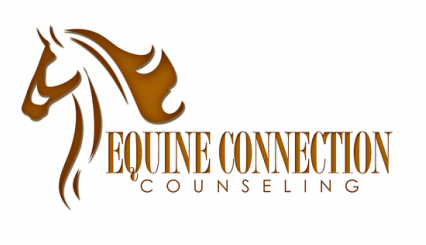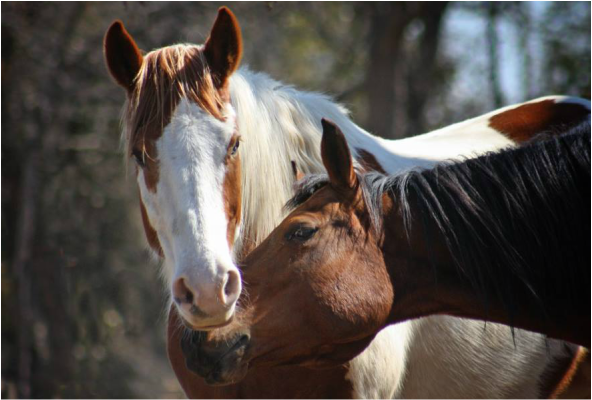In Part 1, we explained a little about what happens as someone begins counseling at ECC. In Part 2, we are talking about things clients might experience in their sessions after they have been coming for a few weeks:
Emotions. Even though humans are wired to feel emotions, people struggling with things like depression, anxiety, PTSD, anger, or sadness learn to “turn off” or “numb” their feelings in order to lessen the overwhelming impact those feelings can have. It is a common coping strategy, but numbing the bad feelings means the good feelings get turned off also. Horses have a hard time being around people that aren’t aware of their own feelings. To horses, feelings are the instincts that keep them safe and they rely on the feelings other horses have to be aware of potential danger, yummy food, or that cranky herdmate that they should avoid. Horses act differently around people who are aware of their own feelings than people who are numb to their feelings. This can be helpful for clients that want to get in touch with their feelings again, because the horses will immediately respond when someone feels an emotion. Horses often prefer to be near people who are aware of their own emotions because they are safer and more reliable herdmates.
Discomfort. We wish we could tell you that counseling is always a warm and fuzzy process. The truth is that counseling can be difficult and scary. Clients might learn things about themselves that they don’t particularly like and they might have to talk about upsetting things. They might try change habits that they’ve had for years. The ultimate goal of counseling is to help the client feel happier and healthier, and sometimes that means addressing and changing unhappy or unhealthy parts of their lives. However, talking about uncomfortable things around the horses can feel safer than talking about them in a traditional counseling office. Being around the horses can decrease stress hormones and increase “happy” hormones, so clients may experience less anxiety while talking about upsetting topics and feel calmer more quickly afterwards.
Awareness or new understanding. Because horses react authentically and in the moment, they may respond to things that the humans around them are not aware of. This includes emotions, thoughts, or physical reactions that clients didn’t notice at first. By experiencing feedback from the horses, clients often learn things about themselves and the way they handle stress that they may not have realized. This gives clients the opportunity to understand themselves better and notice how they act in their day-to-day lives. By understanding what they are experiencing and why, many clients feel better equipped to cope or to change things they are not satisfied with. Also, clients can practice working through their concerns with the horses first before trying it with people. For example, if someone is having difficulty communicating assertively with their spouse, we are likely to see that come out in their interaction with the horse. That way, we can address it in the here and now with the horse, rather than just talking about what happens outside of session. Having the chance to try communicating and relating differently with the horse helps clients feel more empowered and self-confident to try it with people.
Remember that counseling is a participation activity: you get out of therapy what you put into it! If there is something going on that worries you or that you feel uncomfortable with, your counselor will want you to bring it up to them. You have a lot of power over your own healing process and you are the only one who can tell us if something is working or not working. We encourage current and potential clients to contact us with any questions you have about the counseling process.


 RSS Feed
RSS Feed
